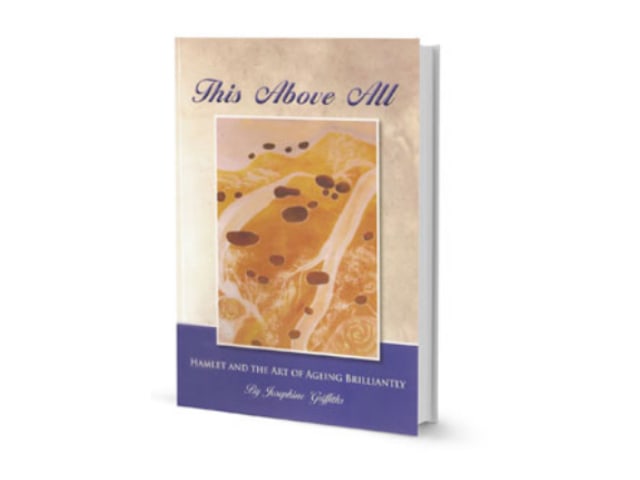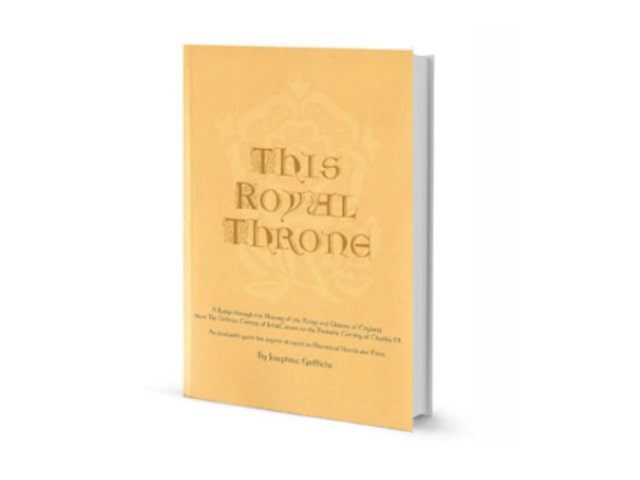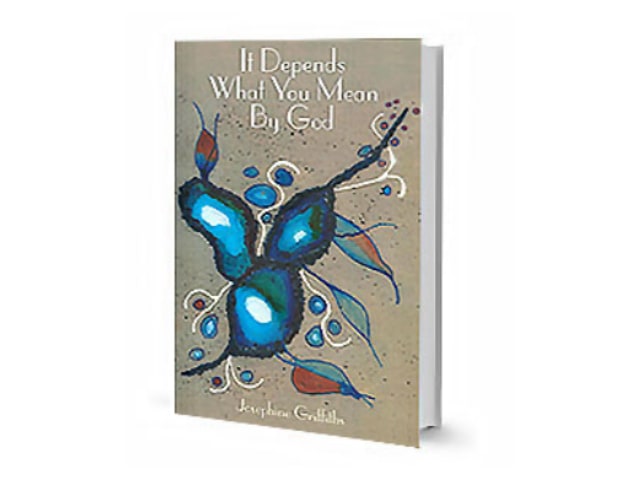Contemporary
Spirituality
Counselling and Spiritual Direction
with Josephine Griffiths
Meet Josephine
For more than four decades I have served as a mentor and guide to women and to men who have wanted the continuity of the Christian tradition outside the institution of the Church, as well as within it.
“With a great deal of kindness and critical thinking, Josephine helps us give ourselves permission to realise fully the feminine within the Christian teachings.”
Based in years of coaching, counselling and spiritual direction, I offer a unique range of expertise and experience for helping people develop the brilliant lives they desire. Each person is unique, and has the capacity for brilliance, but sometimes we lose sight of this for ourselves and we need someone to help restore our confidence. My job is to hold that truth and to encourage you to believe in yourself; to get to know, reconnect, love and appreciate your own inner brilliance, (as well as to live with, accept and care for the self you would rather not be!) This approach has been called the psychology of possibility, which means moving from what is to what could be.
My process and my passion theologically can best be expressed in the words of Mary Robinson, sometime President of Ireland, ‘As women lead, they are changing leadership: as they organise, they are changing organisation; as they restate the skills of law, of the Arts and of the Academy women are handing them on in a fresh and radicalised form.’ My desire is to find fresh and radical forms of New Testament interpretation free from the manacles of an ancient patriarchal world view.
My Latest Blog Posts
It is an undeniable fact that the last fifty years have seen a stupendous change in attitudes to spirituality. Prior to then spirituality was hardly ever mentioned and religion was definitely something you didn’t speak about at dinner parties. The two terms were practically indistinguishable, any difference was nit-picking and you were probably a bit odd if you cared.
An exploration into the question of what makes traditional Christianity unappealing to a great many people who turn to alternative models of spirituality to nourish and support their personal growth. Such a vast subject cannot be dealt with in a simple blog but some major issues are introduced and considered within their historic context.
—William Blake
* ( my changes to gender language)
Please take a moment to learn more about my retreats, which are a haven for women seeking personal growth and a deeper connection with themselves, regardless of their religious background. Join us in embracing the transformative magic of silence and self-care amidst the company of like-minded souls.
Online Retreats
I have now developed my on-line retreats, which you can do at your convenience in the comfort of your own home, or take yourself off to your favourite hideaway.
In Person Retreats
Enjoy your own room with en-suite, delicious meals and nurturing silence. All this together with meditations, brief addresses to create a focus, and one on one consultation should you require it.
Contemporary Spirituality
Biblical imagery speaks directly to the soul of the Westerner. We have grown up with the sacred imagery all about us……For the new depth psychological discoveries about the human soul to take root in us, therefore, they must be formulated in terms of earlier imagery.
—Lawrence W. Jaffe
Contemporary Spirituality brings together a dedication to the life of the spirit with a recognition of where we have come from and the cultural norms that have shaped our understanding of spirit, or soul. This understanding, for societies originating in European culture, is inevitably formed by the Christian story which story now seems, for many people, to be dried up, tired, outworn and of little practical value. Although the form may be neglected, the need for deep patterns and connection to story don’t go away that easily. Carl Jung described his approach to the Christian story this way:
I take these thought forms that have become historically fixed, try to melt them down again pour them into moulds of Immediate experience.
My passion is to find new ways of interpretation, to reform the stories, lifted from their patriarchal roots, and show how valuable and life enhancing they can be. This is no new quest; throughout the centuries each new era has re-interpreted the scriptures to meet the needs and understandings of the day.
Earlier ages did not have the exposure to neuro-biology and other human sciences which, today, inform our striving. Steve Porges, the man who brought the poly-vagal theory to our consciousness, claimed that “spirituality and neuro-biology are both about being a complete human being.” Our understanding of the scripture must ‘keep up’ rather than rest in ancient interpretations consistent with a world view vastly different from our own.
Developing one’s spirituality is a very personal process but there are certain practices which are commonly recognised as aids to that work. Meditation is a key, in all its multitude of models, and prayer, which may be thought of very differently from the traditional forms of praising God or asking of Him a favour. Times of silence would be considered essential to the spiritual life as would compassion and respect for all creation. A guide, director or mentor have traditionally been considered a necessity whereas, today, we have substituted a counsellor or psychologist with whom to share our pain, our confusion and our desires. Sadly, these professions rarely include experience in the life of the spirit, or soul care.
Working With Josephine
In my work I call on years of experience in coaching, counselling and spiritual direction, with a unique range of expertise in a variety of modalities. My approach to both psychology and spirituality is as possibility for what can be rather than what was. The focus is to be alongside people as they explore the inner life or develop their unique spirituality and to be a support as they face the transitions and challenges that life brings.
Personal Coaching
Coaching is for the healthy person who wants to get even more out of life; it is about purpose, and developing the future rather than fixing the past.
Coaching at Work
Demanding jobs often require skills outside of those for which we are trained. Supervision or work coaching can help you through the difficulties.
Funerals
Planning a funeral service that is both respectful and comforting is a serious undertaking. I am happy to be there with you to plan and conduct the funeral that feels right for you. Email or call me if I can be of help.
Spiritual Direction
Attending to our soul’s needs and fostering the symbolic and the sacred in our lives brings meaning and enriches both us and the world in which we live.
Companionship
Companionship coaching can help you through times of transition or anxiety, and help you find a new state of joy, fulfilment and deep satisfaction.
What Clients Have To Say…
Josephine is the perfect life mentor; with wisdom and clarity she opens the doors to what I need and want for a soulful, true and contented life.
Whatever the concerns, problems or difficulties I have at work I always find that talking them over with Josephine brings me clarity and a way forward. Her wisdom and experience guide me to an answer to the immediate problem and also help me to develop my skills in management and communication.
Josephine’ s clarity and wisdom are to the cultivation of my inner life are what organic fertilizers are to her roses; they enrich me to blossom.
Discover Josephine’s Books
This interesting collection of books covers my different areas of interest and expertise. My first was a study of God as feminine in Christian tradition, a reality which is still far from being recognised in the church but largely remains a curiosity of some Biblicists. The intent of this book was to make the information easily available and readable. My last (to date) is a book to comfort and console the bereaved with short pieces, poetry and life examples to speak to the vagaries and the confusion that grief brings.
And in between there are several books on topics of continuing interest designed for people who like to read, who like to be challenged in unexpected ways and who like to be amused, too.








